Affiliate links on Android Authority may earn us a commission. Learn more.
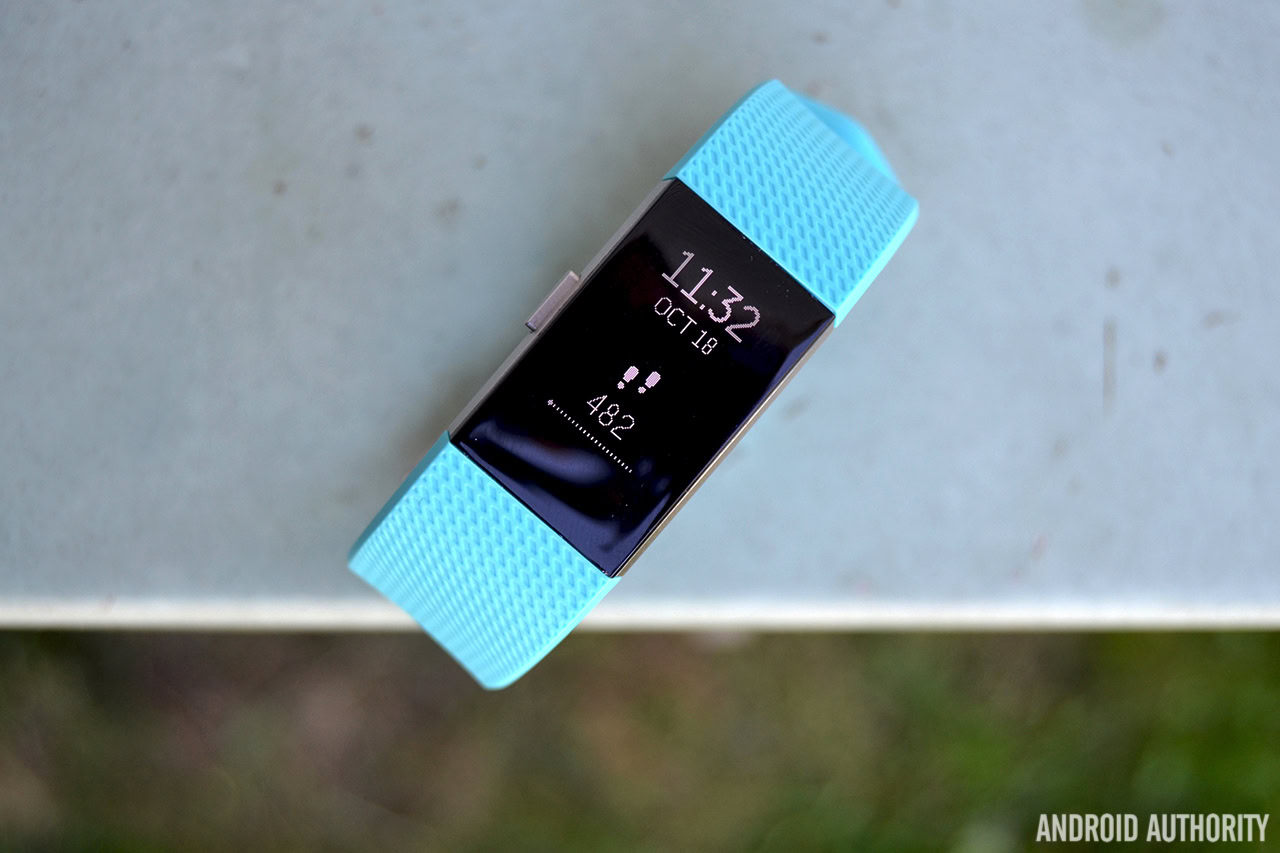
Fitbit Charge 2 review
Published onApril 1, 2021
Fitbit Fitbit Charge 2
What we like
What we don't like
Our scores
Fitbit Fitbit Charge 2
Fitbit has gained massive success in the fitness tracking and wearable communities by offering quality products at affordable price points, and perhaps that’s why the Fitbit Charge HR was so successful. With a long-lasting battery, accurate activity tracking, and an easy-to-use companion app, the Charge HR was much more than just a glorified pedometer. It wasn’t all that attractive, though, and still very much looked like a standard fitness tracker.
Now Fitbit is back with a follow-up to the super-popular Charge HR. With an all-new design, a bigger screen, and even more useful activity-tracking features, does the Charge 2 have what it takes to become your next wearable? We find that out, and more, in our full Fitbit Charge 2 review.
Design
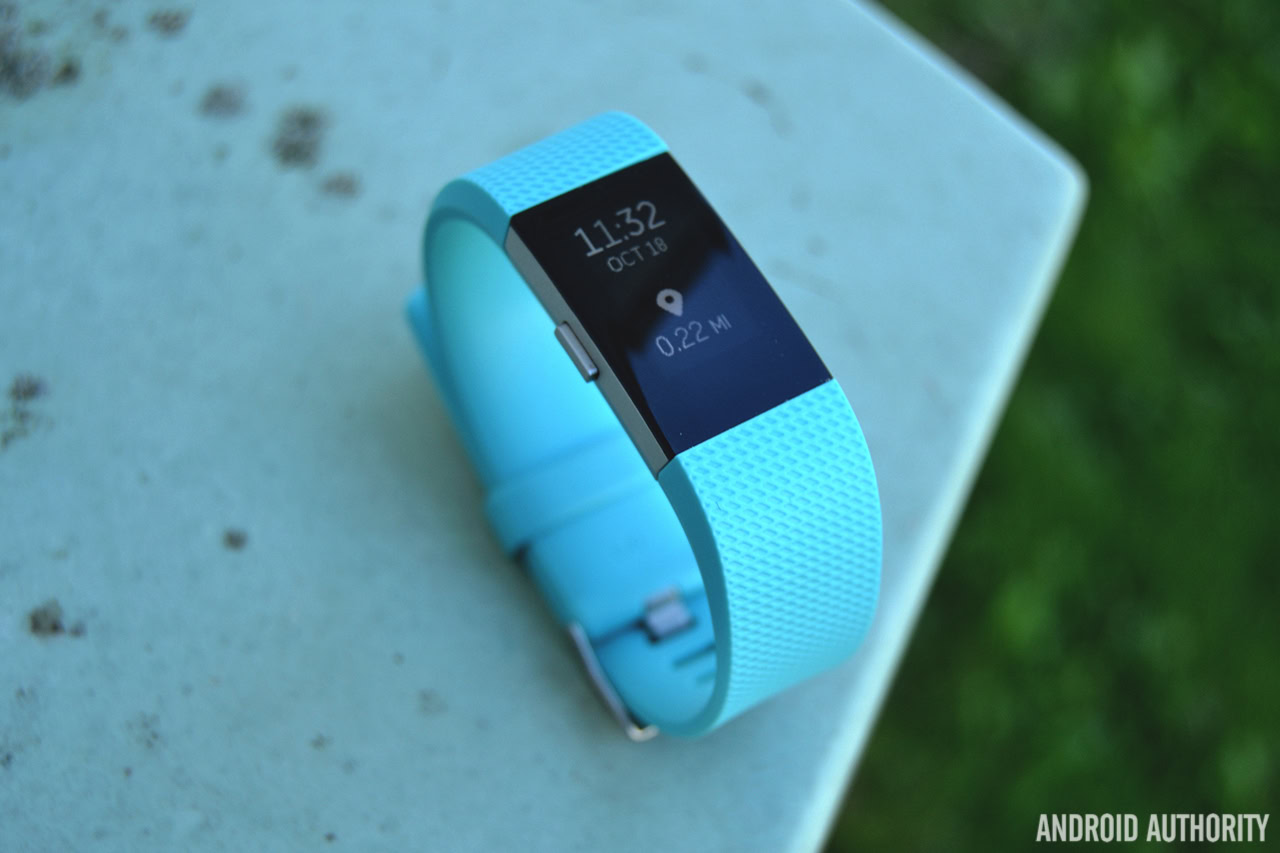
Prior to 2016, Fitbit had a design problem. It wasn’t that the Charge HR, Surge, or Flex looked ugly, per se, they just looked like every other fitness tracker out there. Then at the beginning of 2016, the company launched two new fashion-focused devices, the Alta and the Blaze, which marked somewhat of a turning point for the company. Fitbit started using more high-quality materials like stainless steel in its devices, and that’s especially true for its latest fitness tracker.
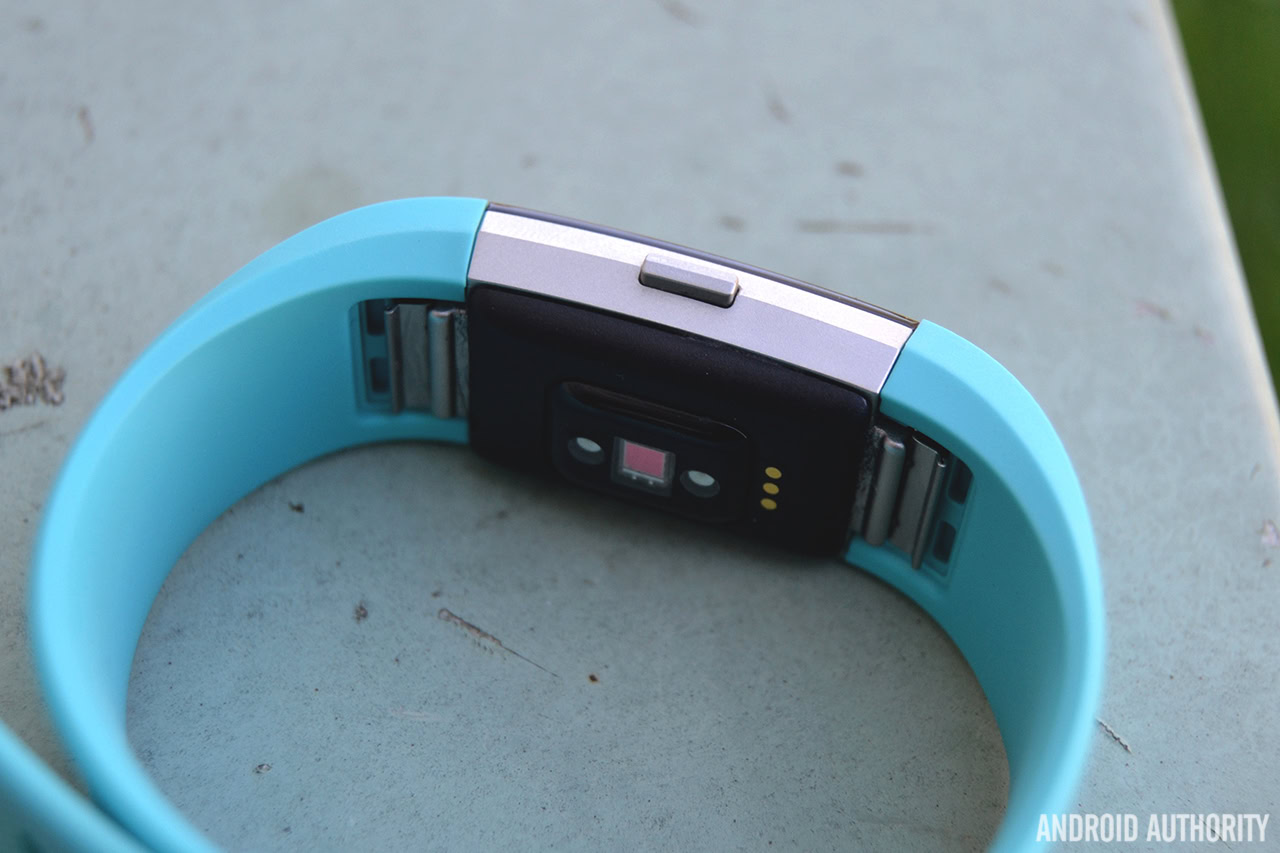
The Charge 2, like the Alta before it, sports a stainless steel chassis and a big, tap-enabled display. You’ll find one button on the left side of the device which is used for cycling through different modes and functions. Tapping the button will allow you to cycle through the current time, heart rate, activity start, stopwatch, relaxation timer, and active silent alarms. You can remove any of these and reorder them all from within the Fitbit companion app. Alternatively, you can tap on the display to cycle through your daily stats, which include steps taken, heart rate, distance traveled, calories burned, stairs climbed, and active minutes.
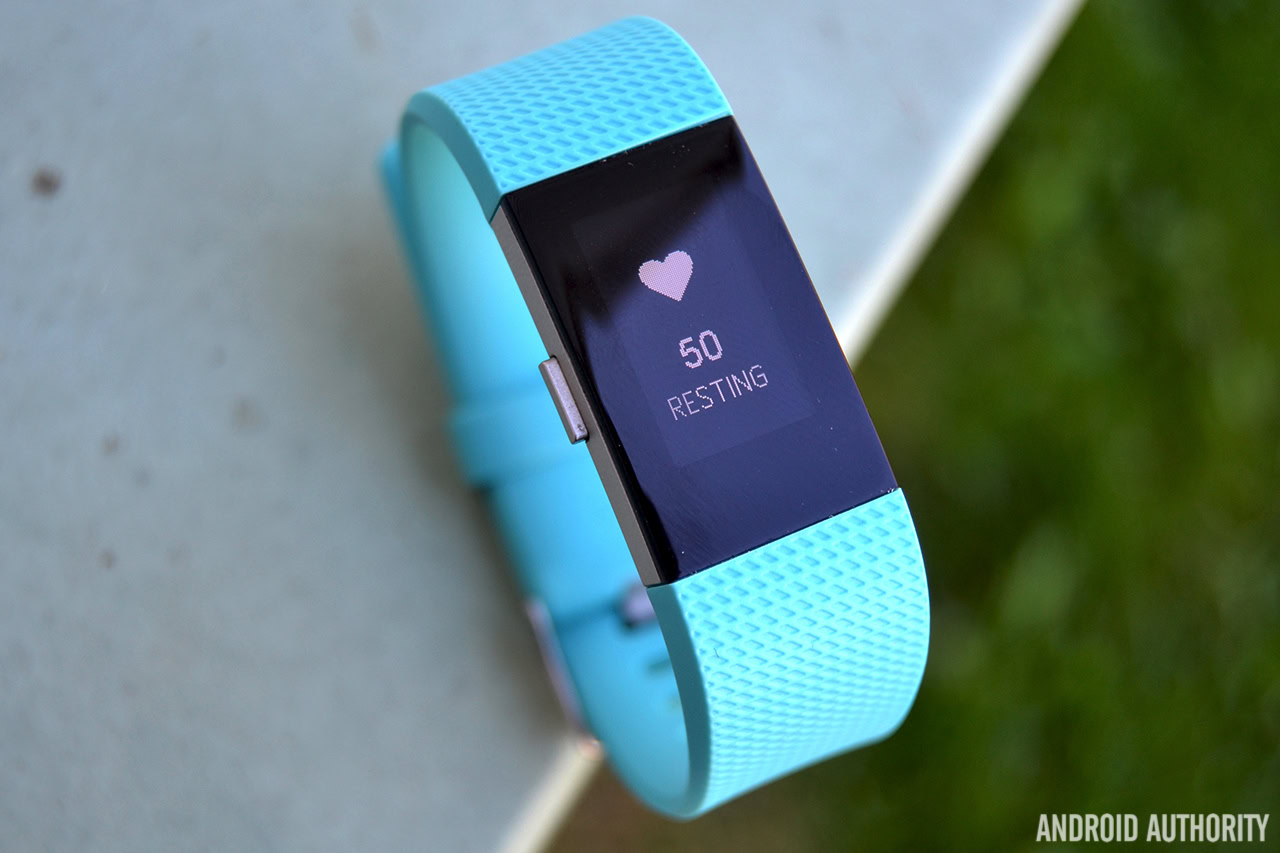
A bigger display also means there's more room for smartphone notifications
This new, larger display is certainly a welcome addition, as it not only allows for more information to be shown on one screen but also for more unique clock faces. There are quite a few to choose from — seven to be exact — and they all offer a good mixture of style and functionality.
A bigger display also means there’s more room for smartphone notifications. While the Charge HR was only able to provide call notifications, the Charge 2 supports call, text, and calendar events. The display isn’t actually that big, though, so notifications are sometimes difficult to read.
Also read: The best smartwatches you can buy
One of my main gripes with the Charge HR was that the display scratched pretty easily, and I’m happy to say that issue has been fixed this time around. I’ve been using the Charge 2 for a few weeks now, and we still have yet to see any scratches on this thing.
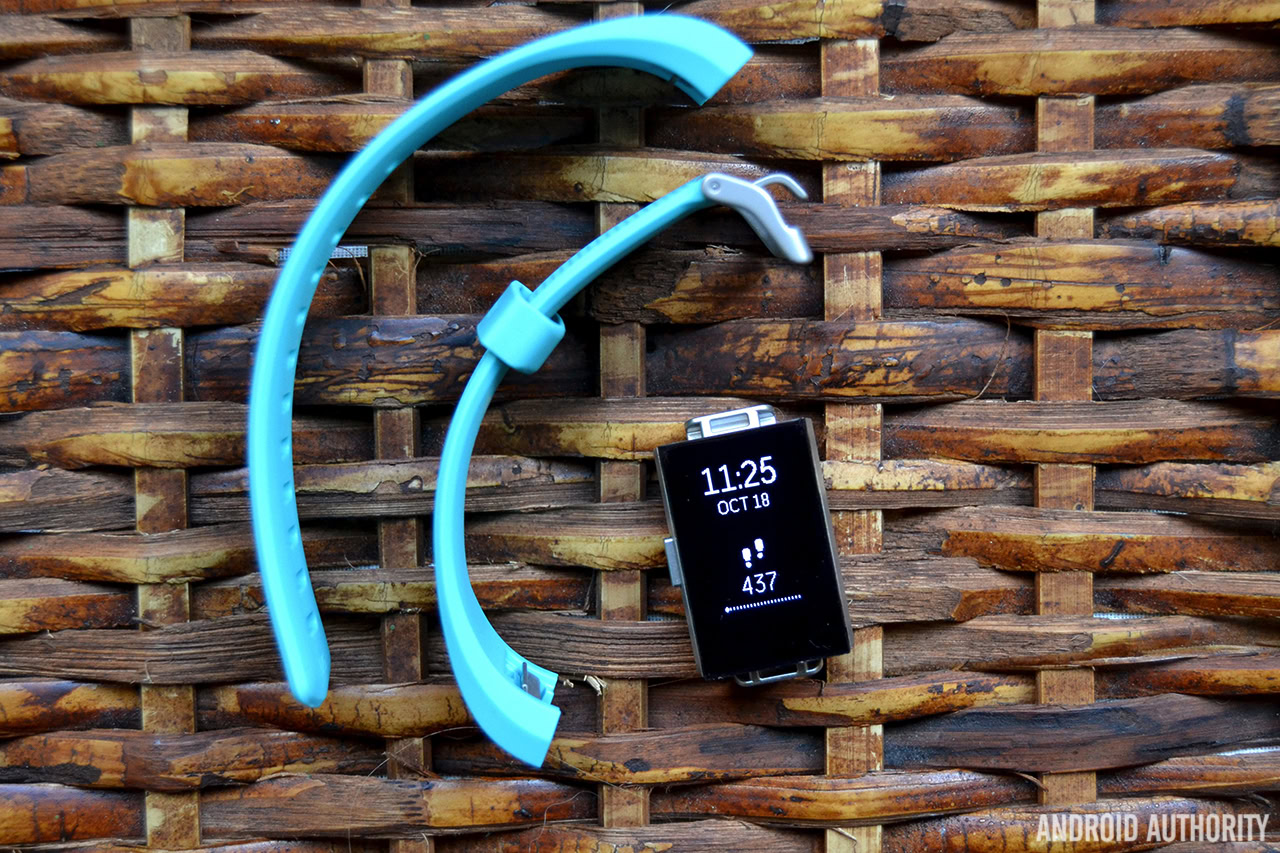
Another major design change you’ll notice with the Charge 2 is support for interchangeable bands. The Charge 2 is offered in Black, Blue, Plum, and Teal color options, as well as Special Edition Lavender/Rose Gold and Black/Gunmetal colors. You can buy any of these bands separately from Fitbit’s website for $29.95 each. You can also opt for a fancier leather band in Brown, BLUsh Pink, or Indigo if you don’t mind shelling out an extra $69.95.
Features and performance
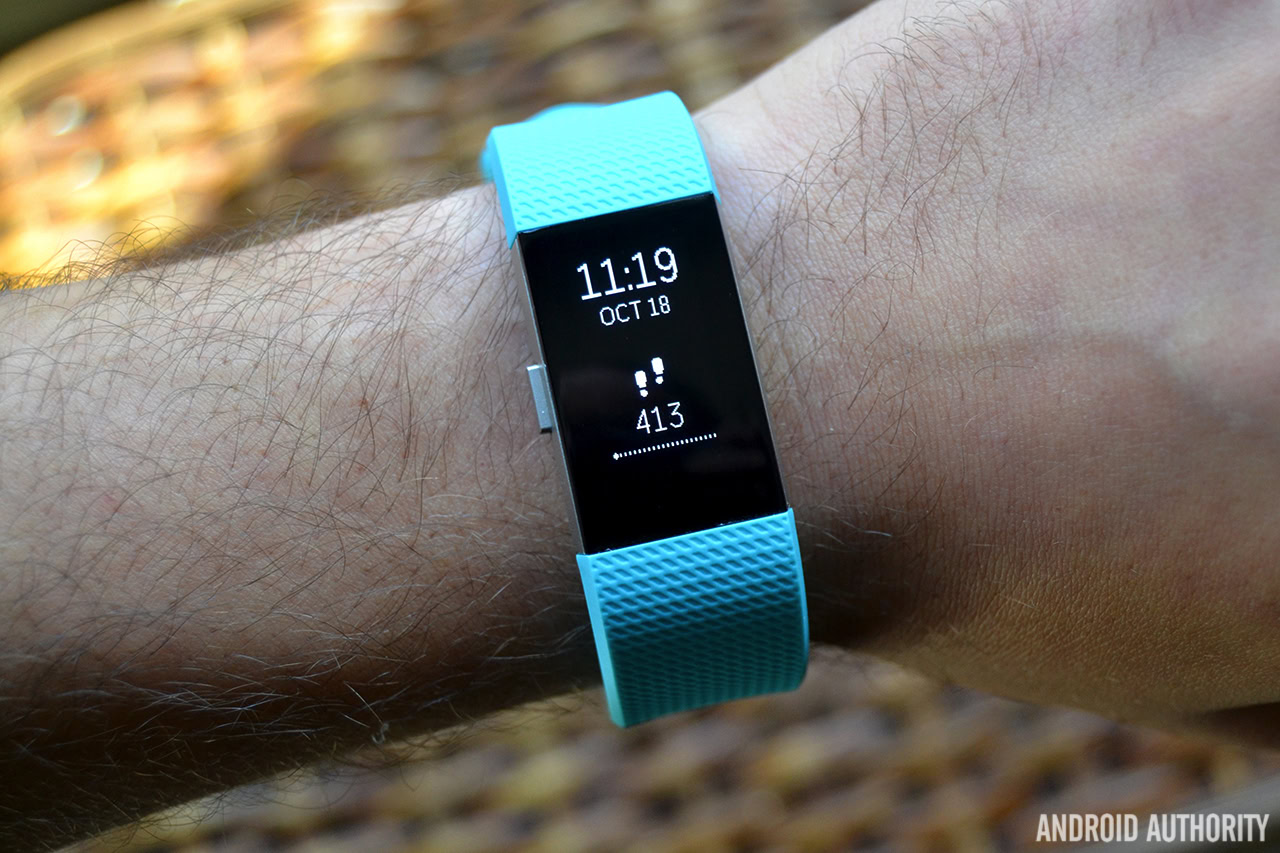
As is par for the course of most fitness trackers in this price range, the Fitbit Charge 2 will track your steps taken, distance traveled, calories burned, floors climbed, active minutes, and sleep. You’ll notice we didn’t mention swim tracking, though, and that’s because this device won’t survive in water. Yet again, Fitbit decided to forego proper waterproofing on its flagship fitness tracker, which we must say is a tad upsetting at this point. Fitbit has long been an innovator in the fitness tracking world, but the company is extremely behind in this area. Garmin, Withings, Xiaomi, and most of Fitbit’s other direct competitors have managed to launch fitness trackers with decent waterproof ratings, so it’s a shame to see the Charge 2 sport a “splash proof” rating.
Fitbit did launch its very first waterproof fitness tracker, the Flex 2, at the same time as the Charge 2.
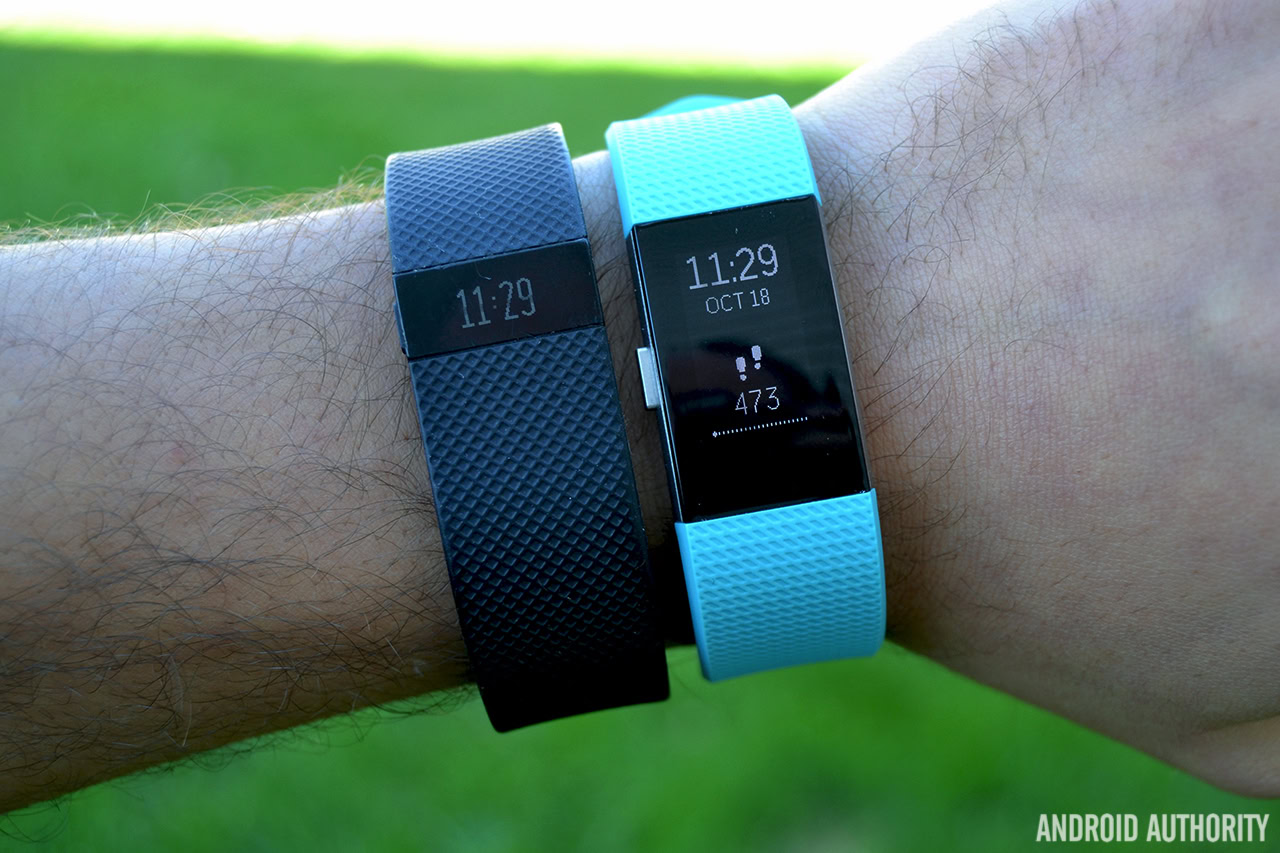
When comparing them against one another, we found that both the Charge 2 and Charge HR are basically on par with one another in terms of step tracking, with each one being just a handful of steps off from one another after a run or walk. We also took the Charge 2, Charge HR, and Garmin vivoactive HR out on a walk for 500 steps, and all three came back within four steps of each other.
Floors climbed and active minutes metrics are pretty much spot on as well, but unfortunately, since the Charge 2 doesn’t have GPS onboard distance metrics won’t be all that accurate. It does have connected GPS, which allows you to use your phone’s GPS to get more accurate distance tracking and pace results. That of course means you’ll have to carry your phone with you when you’re exercising, which isn’t all that convenient for most people.
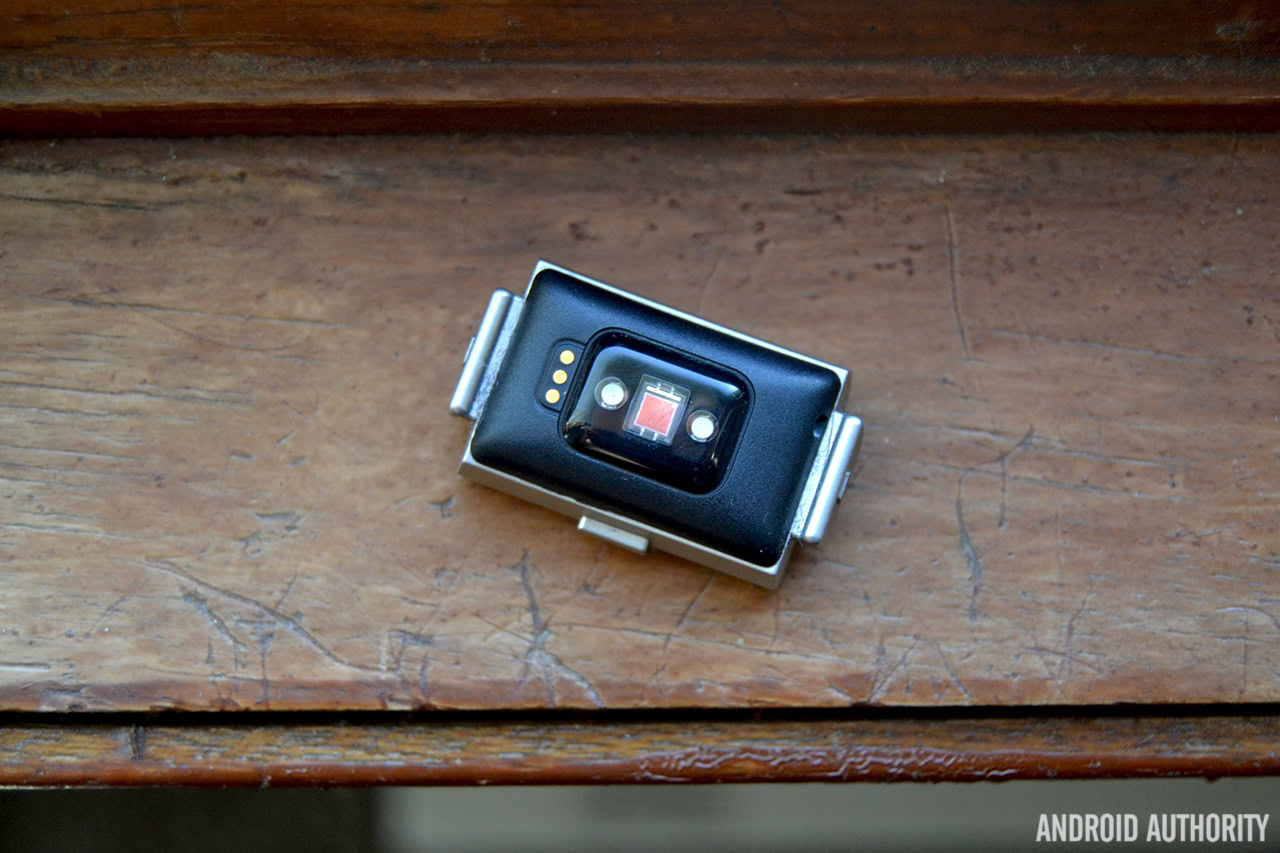
Like most recent Fitbit devices, the Charge 2 comes with Fitbit’s PurePulse optical heart rate monitor, which will help you keep track of your active and resting heart rate. We’ve been very impressed with the Charge 2’s resting heart rate readings, though active readings, unsurprisingly, can be a little off at times. We tested the PurePulse heart rate monitor against the Wahoo Tickr X chest strap on multiple occasions, and much of the time, the PurePulse sensor came up short by about 5bpm or so.
Below you’ll find screenshots of the Wahoo Tickr X vs the Fitbit Charge 2 during the same run. Note the difference between the peak heart rate readings on the Tickr X (towards the end of the workout) and the Charge 2’s readings at the same point. The Tickr X recorded a peak reading of ~176bpm, while the Charge 2 was only recording ~130bpm at this point.
The Charge 2 will automatically track walking, running and biking, thanks to SmartTrack
One of the best things about using Fitbit devices is the company’s powerful automatic activity tracking software, or SmartTrack. The Fitbit Charge 2 is able to track walking, running, outdoor biking, and elliptical workouts automatically, and will categorize each of those into groups: Sport (high-intensity movement activities like basketball and soccer) and Aerobic Workouts (Zumba, cardio-kickboxing, etc). SmartTrack is normally very impressive when it comes to recognizing which activities you’re doing, but we’d still recommend starting a workout manually if you can remember. Automatically tracked workouts won’t track distance or pace, for instance.
In the screenshots below, you can see the screens labeled “Bike” are workouts where I started my activity manually from the tracker, and the screen labeled “Outdoor Bike” is the activity tracked by SmartTrack.
Speaking of automatic activity recognition, the Fitbit Charge 2 will automatically track your sleep every night. There’s no need to tap any “sleep now” button or anything before you hit the hay. Just make sure you fall asleep while you’re wearing your Fitbit, and it’ll have sleep stats waiting for you in the morning. The Charge 2 can record your total sleep time and sleep quality, which is measured by the number of times you woke up and how many times you became restless throughout the night. Overall, we’ve found the Charge 2 to be quite accurate on the sleep tracking front, with no glaring errors as far as we can tell. The tracker also supports silent alarms, which is always nice to see on wrist-mounted fitness wearables.
Related: The best sleep trackers
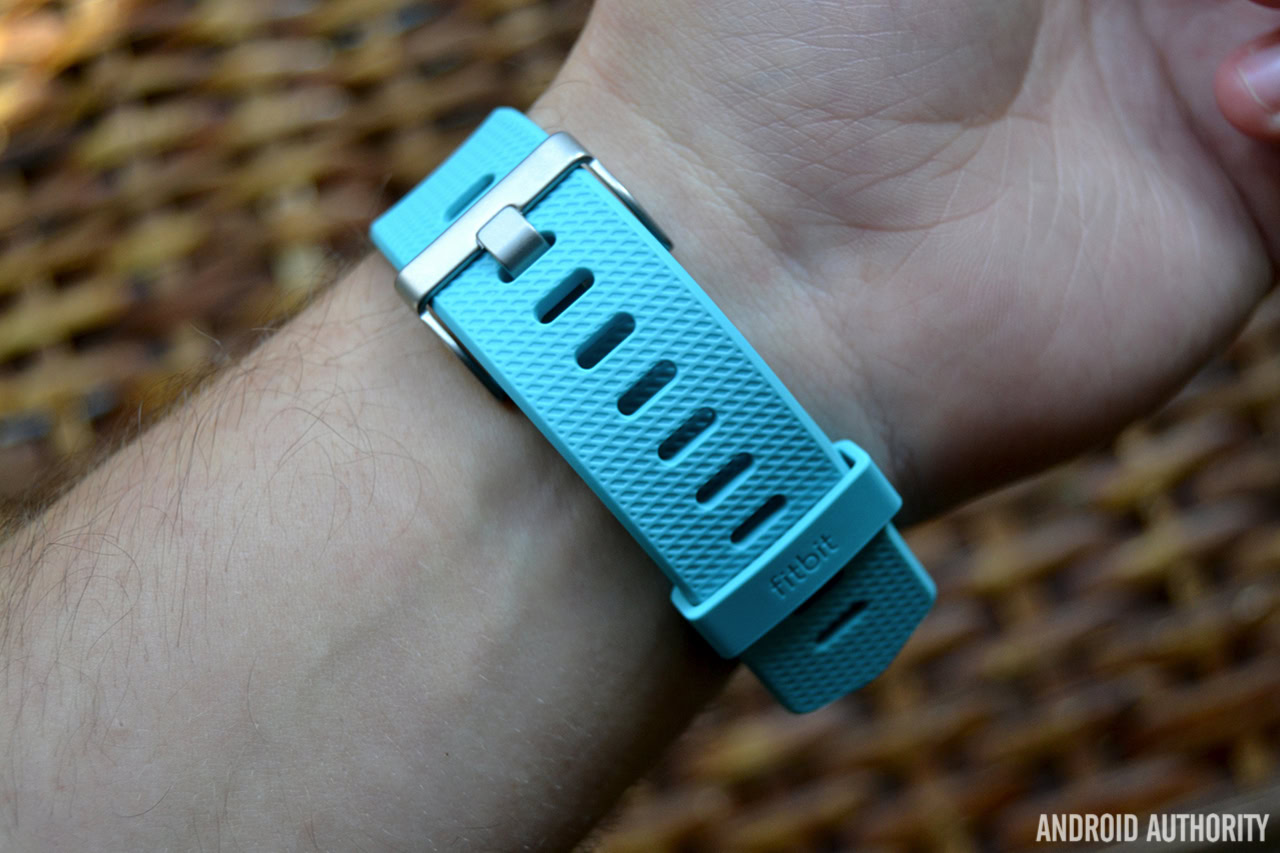
Fitbit also introduced a few new features to the Charge 2 that should help users stay healthy and relaxed over time. The first of these new features is a measurement of your Cardio Fitness Level. Found within the heart rate section of the Fitbit app, a personalized score based on an estimation of your VO2 max (how well your body uses oxygen when you’re working out the hardest) will give you a rating on your overall cardiovascular fitness. Estimated VO2 Max is pretty much the gold standard for grading cardiovascular fitness. Basically, the higher your VO2 Max and Cardio Fitness Score, the better your cardiovascular fitness.
The higher your VO2 Max and Cardio Fitness Score, the better your cardiovascular fitness
While the Cardio Fitness Score will certainly help some folks make improvements to their workouts in the long run, the feature is kind of tucked away in the heart rate portion of the Fitbit app. You won’t find it on the home screen of the Fitbit app (aka Dashboard), and unless you were really exploring around the app you probably wouldn’t come across it. It’s just an odd place to put a big new feature, we suppose.
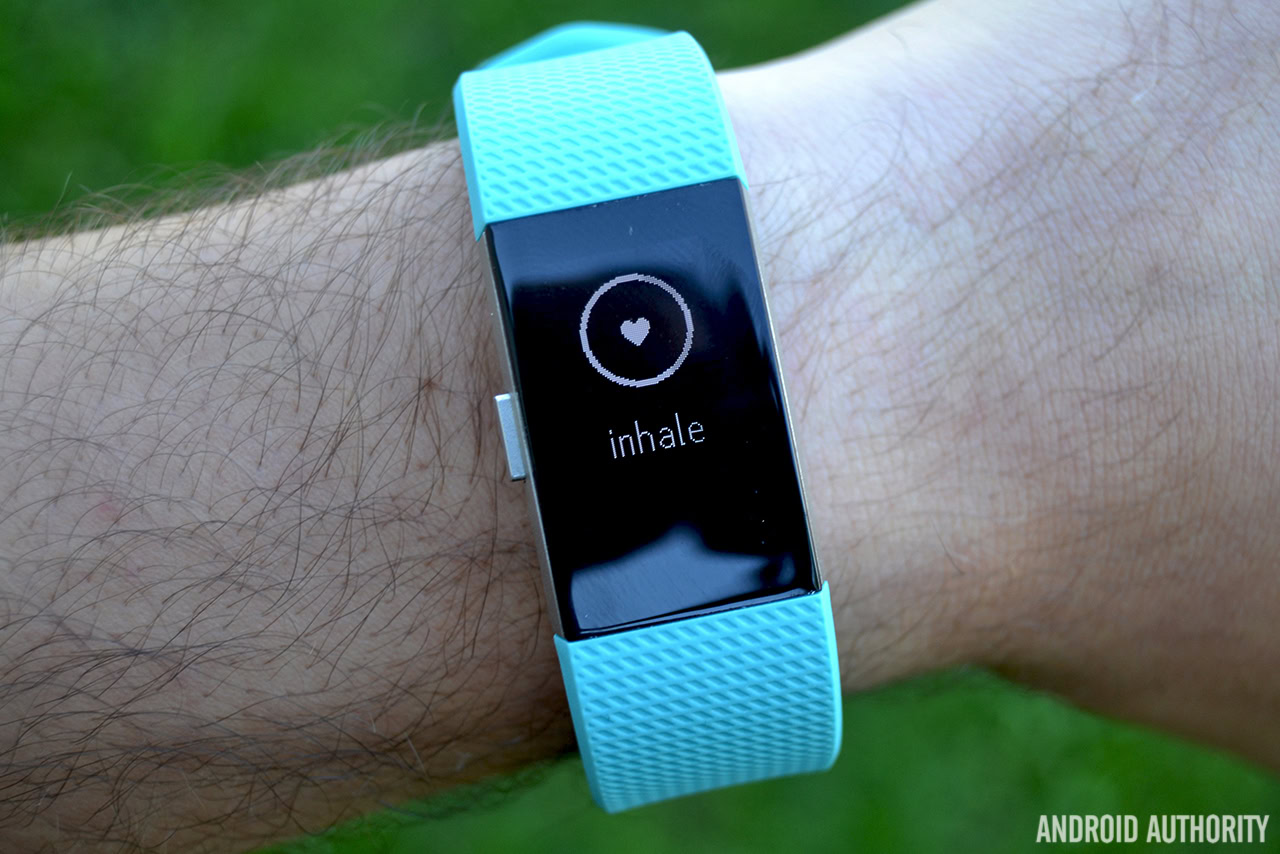
One other new feature present on the Charge 2 is on-device guided breathing. Fitbit calls this Relax. Once you navigate to Relax on your Charge 2, your device will begin walking you through two- to five-minute breathing exercises that should help you reduce stress, lessen anxiety, and lower blood pressure. Each breathing session is powered by Fitbit’s PurePulse heart rate monitor, of course. It uses your real-time heart rate stats to measure your heart rate variability and determine the best breathing rate to suit your needs. Do we think this is a game-changing new feature? Not really, but the option is there if you need help calming down from time to time.
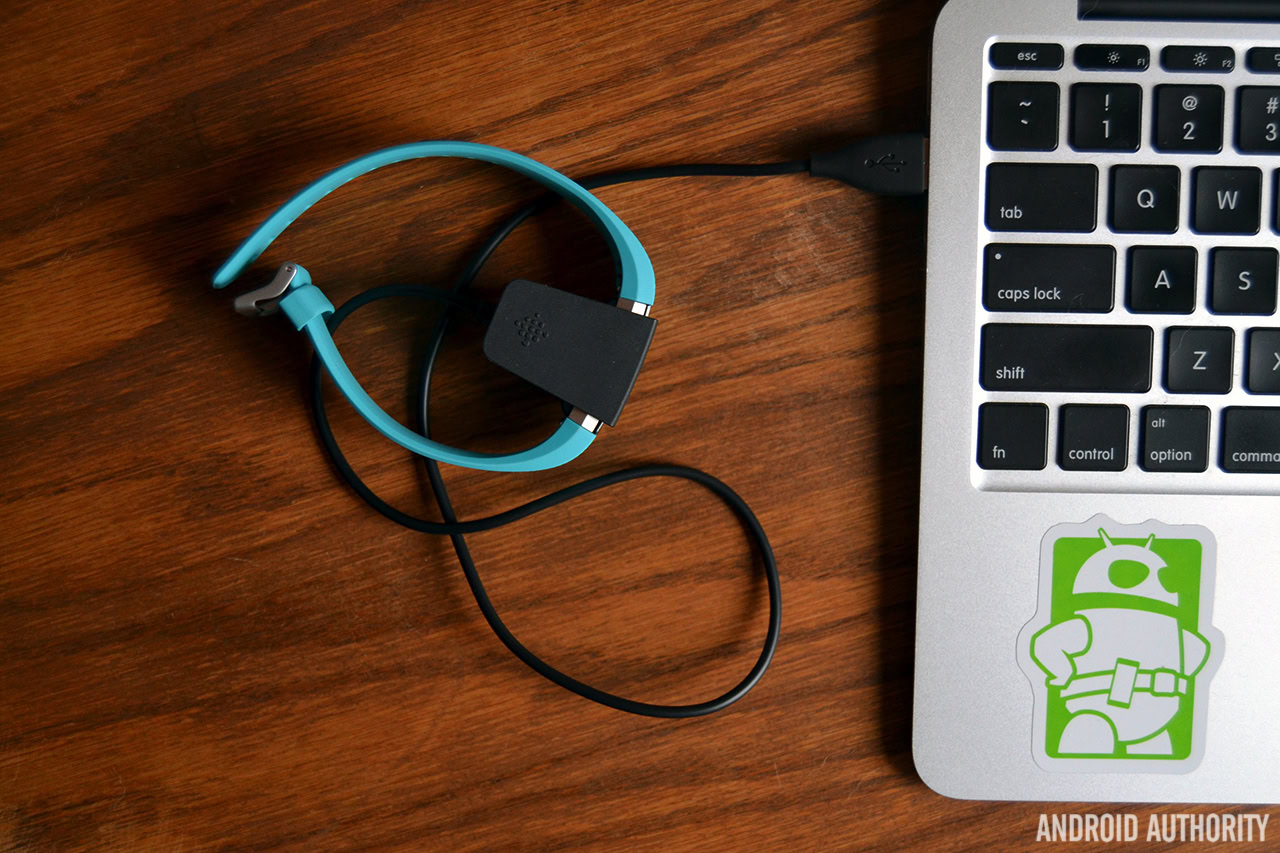
Fitbit claims the Charge 2 can last up to five days on a single charge, and we’ve found that to be somewhat true. With moderate usage and the heart rate monitor set to automatic, we were only able to achieve a little over four days of battery life. It’s entirely possible to make it last an extra day with the heart rate monitor turned off, but you should expect less than that if you’re wanting to record your heart rate.
As far as charging is concerned, we much prefer this method over the Charge HR’s tiny charging cable. With the Charge 2, just clasp the charger around the device’s chassis, plug it into a USB outlet, and you’re all set. There’s even a little hole in the clasp to fit around the Charge 2’s physical button so you know which way to put it on.
| Fitbit Charge 2 | Fitbit Charge HR | |
|---|---|---|
Display | Fitbit Charge 2 1.5-inch multi-line OLED Tap display | Fitbit Charge HR Narrow OLED Tap display |
Heart rate monitor | Fitbit Charge 2 Yes, optical | Fitbit Charge HR Yes, optical |
GPS | Fitbit Charge 2 No, Connected GPS | Fitbit Charge HR No |
Water resistant | Fitbit Charge 2 No, splash proof | Fitbit Charge HR No, splash proof |
Sleep tracking | Fitbit Charge 2 Yes, automatic | Fitbit Charge HR Yes, automatic |
Estimated VO2 max, guided breathing | Fitbit Charge 2 Yes | Fitbit Charge HR No |
Silent alarms | Fitbit Charge 2 Yes | Fitbit Charge HR Yes |
Notifications | Fitbit Charge 2 Call, text and calendar alerts | Fitbit Charge HR Call |
Battery life | Fitbit Charge 2 Up to 5 days | Fitbit Charge HR Up to 5 days |
Sensors | Fitbit Charge 2 Optical heart rate monitor 3-axis accelerometer Altimeter Vibration motor | Fitbit Charge HR Optical heart rate monitor 3-axis accelerometer Altimeter Vibration motor |
Compatibility | Fitbit Charge 2 Windows, Mac, Android, iOS, Web | Fitbit Charge HR Windows, Mac, Android, iOS, Web |
Interchangeable bands | Fitbit Charge 2 Yes | Fitbit Charge HR No |
Colors | Fitbit Charge 2 Standard: Black, Blue, Plum, Teal Special edition: Lavender/Rose Gold, Black/Gunmetal | Fitbit Charge HR Black, Blue, Plum, Tangerine, Teal |
Dimensions | Fitbit Charge 2 Small: 139.7mm - 170.2mm (21.3mm wide) Large: 170.2mm - 205.7mm (21.3mm wide) XL: 205.7mm - 236.2mm (21.3mm wide) | Fitbit Charge HR Small: 137mm - 157.5mm (21mm wide) Large: 157.5mm - 193mm (21mm wide) |
Price | Fitbit Charge 2 Standard: $149.95 Special edition: $179.95 Additional classic bands: $29.95 Additional leather bands: $69.95 | Fitbit Charge HR $129.99 |
Software
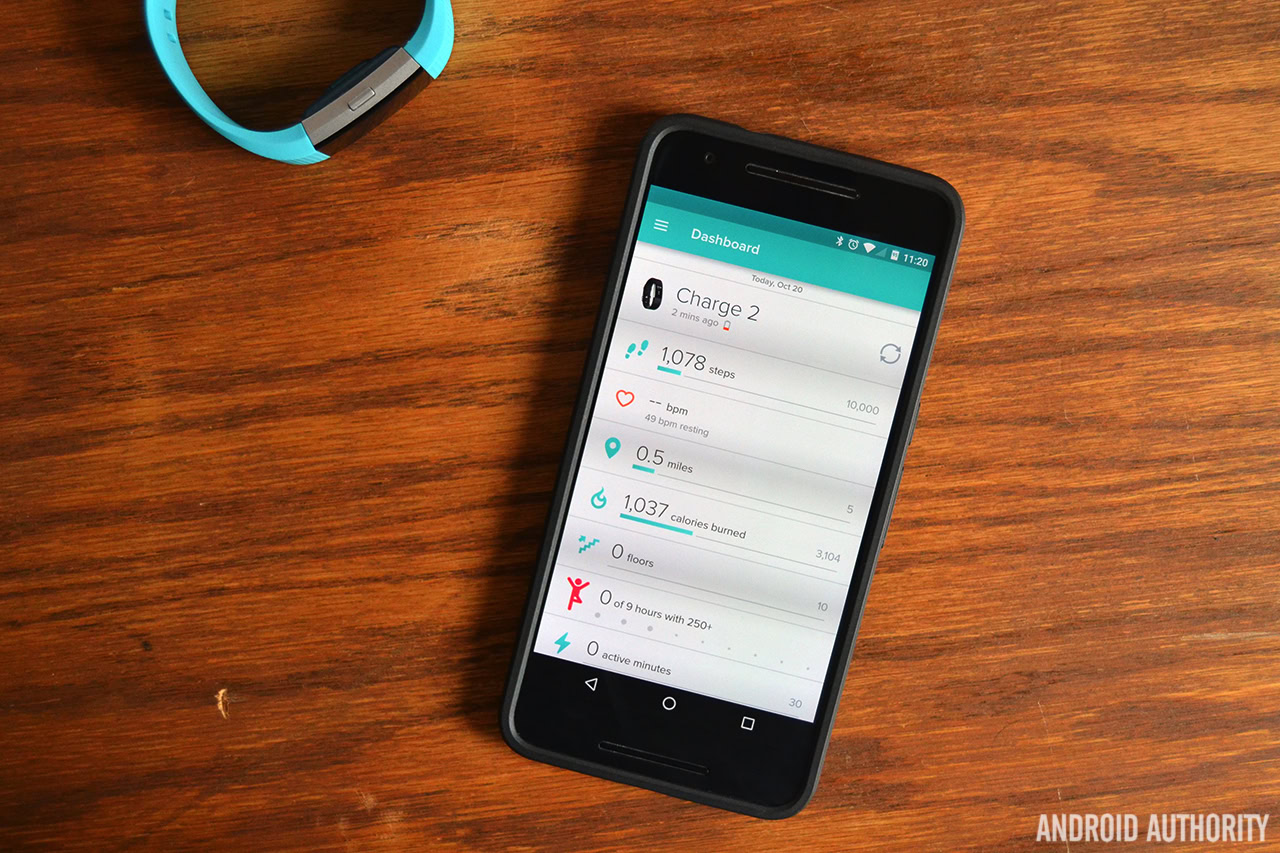
Here at Android Authority, we’re huge fans of Fitbit’s smartphone companion app. It’s well designed, easy to use, and gives you all your important stats on the main screen in an easy-to-digest layout. The main home screen, or the Dashboard, gives you quick access to your daily stats, including your steps taken, heart rate, distance traveled, calories burned, floors climbed, active minutes, weight, sleep stats, food plan, and water consumption. If you’d like to get detailed information on any of these stats, just tap on that category. You’ll then be taken to your weekly, monthly, and yearly history for that metric.
If you’d like to change any of your tracker’s settings, click on the device name at the top of the Dashboard. Here is where you’ll be able to manage call and text notifications, move reminders, wrist placement, silent alarms, and more.
There’s also a slide-out navigation menu on the left that allows you to access your Dashboard, daily challenges, friends, and account settings. The Challenges section is home to plenty of daily and weekly goals that aim to help you go the extra mile (literally). You can also invite friends to take part in challenges with you. For instance, you and a friend can see who can take the most steps in 24 hours, or see who can take the most steps between Monday and Friday.
What’s more, you can also share data from the Fitbit app with a number of other services. Whether you’re using Lose It!, RunKeeper or MyFitnessPal, you’ll be able to share your data between applications.
Gallery
Should you buy it?
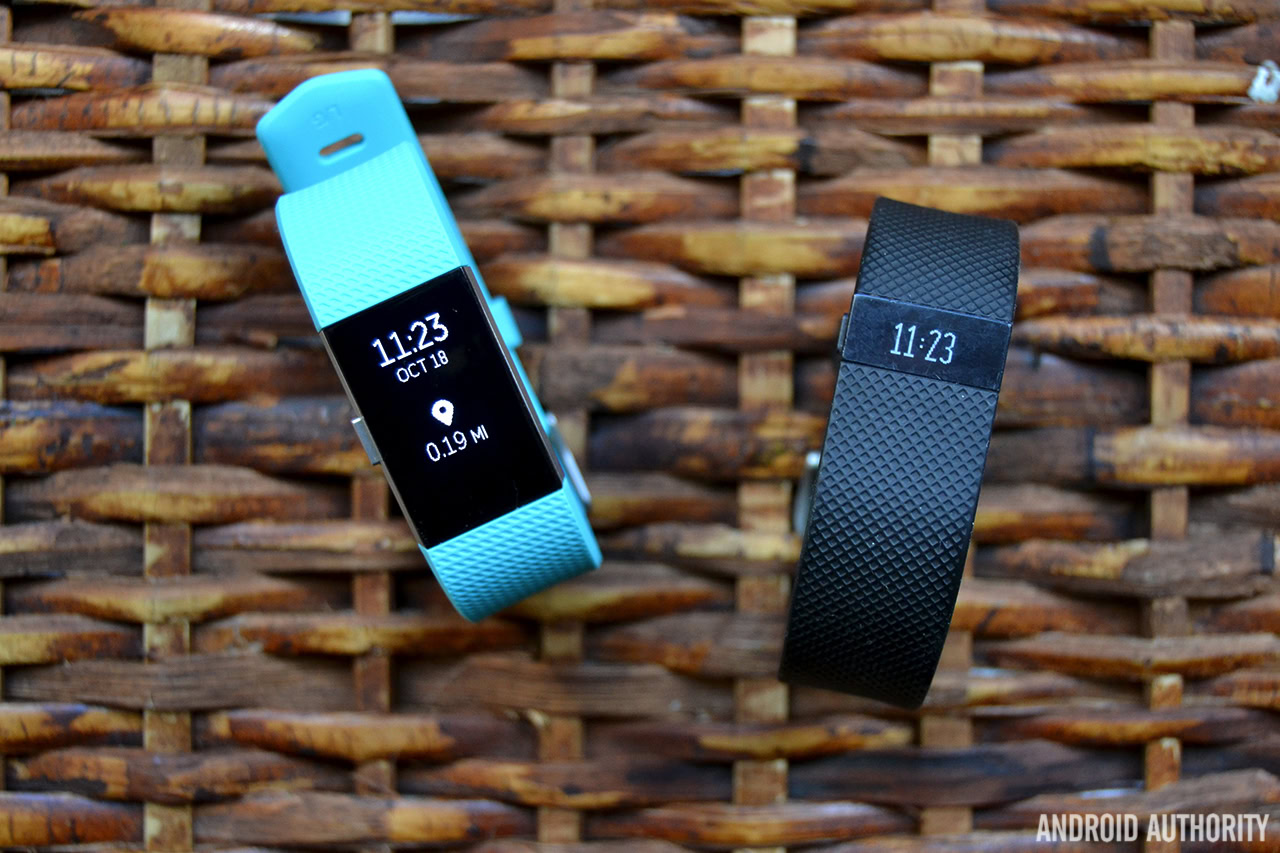
The Fitbit Charge 2 used to be available on Fitbit.com, Amazon, and other retailers for $150 in Black, Blue, Plum, and Teal color options. The Special Edition Charge 2 variant could be found on Fitbit’s website for $180, while extra leather bands were available for $70 each.
It’s 2021 now, and we no longer recommend the Fitbit Charge 2. However, the Charge 4 is a great fitness tracker that’s regularly on sale.
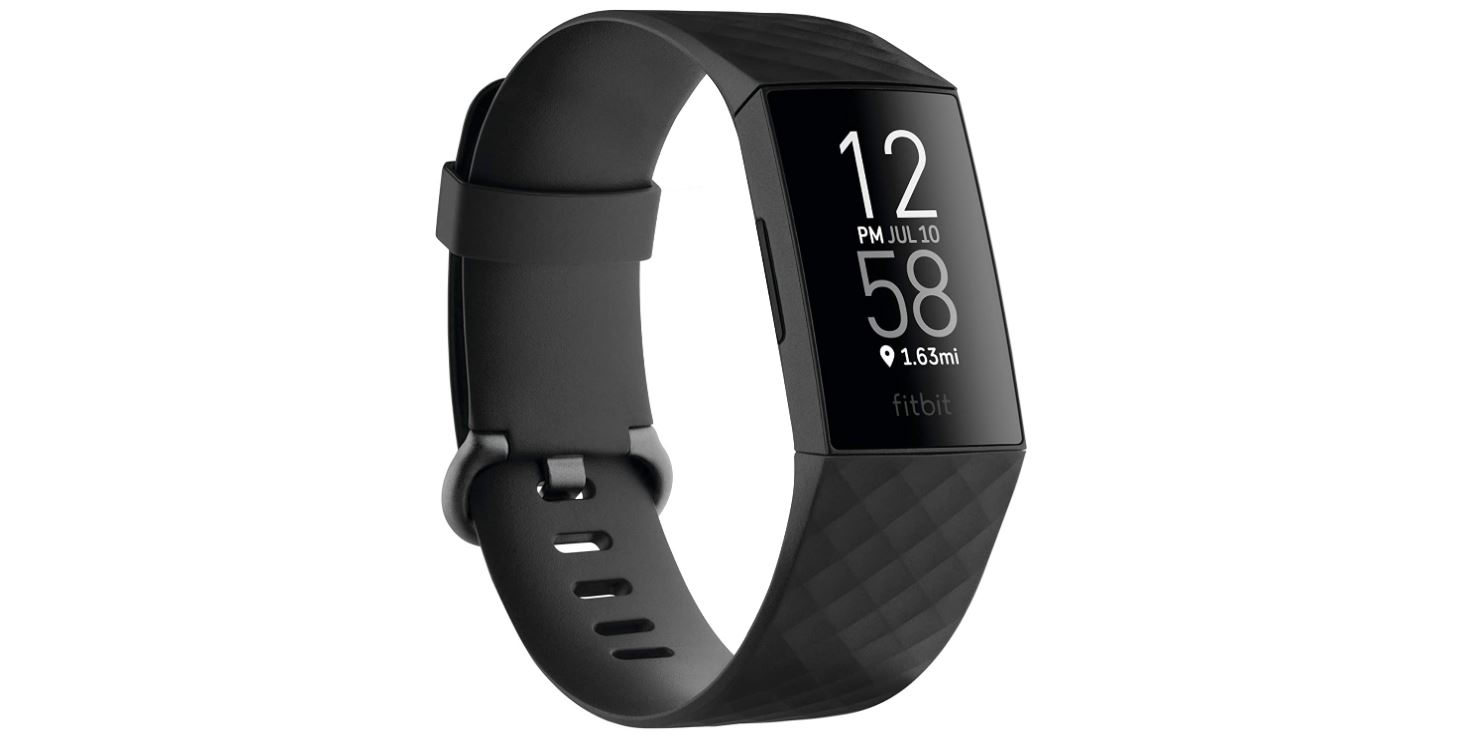
But in 2016, if you were buying a fitness tracker in this price range, it was hard not to consider the Charge 2. With a much-improved design, bigger display, more smartphone notifications, and a handful of new tracking features, the Charge 2 certainly offered a lot for its $150 price point over the Charge HR. No, you didn’t get built-in GPS, the heart rate monitor could be much more accurate, and hardcore fitness buffs might find the feature set a little lacking. But despite its downfalls, the Charge 2 was a great option if you were looking for a wearable to help keep track of your activity levels.